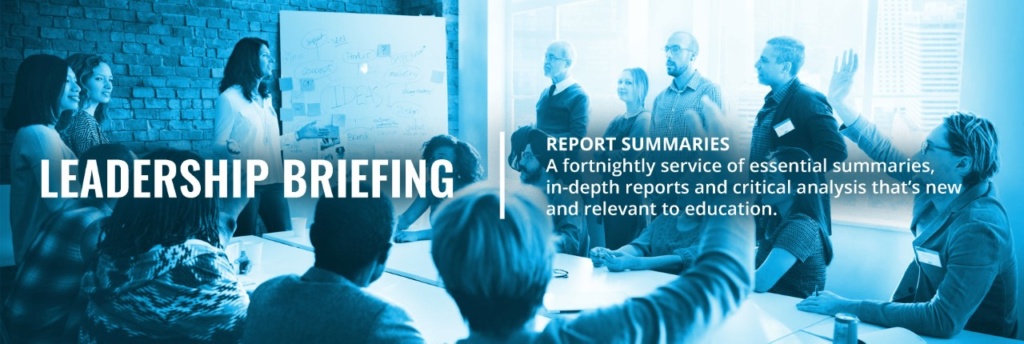
This report examines the range of partnerships and links that secondary and special schools across Wales have with employers. It considers the range of learners’ experiences and the characteristics of effective links between schools and employers.
The development of enterprise education in schools in the UK and across the world had been a notable feature in education systems over the last century, but it had proved difficult to measure its impact. A strong element of enterprise education is employer engagement and the way it can provide access to real-world, work-related experiences for learners.
The report also examines how senior leaders in schools are starting to consider how to plan for the cross-cutting theme of careers and work-related experiences in the new Curriculum for Wales.
Main Findings:
- Where schools engage well and work closely with employers, learners have a better understanding of the world of work and the skills and attributes they need for the future. The effectiveness of this partnership work usually depends on the vision and drive of the headteacher, senior managers and school staff.
- Schools engage with employers in a variety of ways. Many schools offer learners a suitable range of work-related experiences, including experiences that are part of the curriculum, themed days when the usual timetable is suspended, extra-curricular activities, visits to places of work, or through visiting speakers.
- Only a minority of schools now offer work experience2 for learners. This is because many schools have been slow to respond to the change in Careers Wales responsibilities. Where schools have maintained a member of staff responsible for careers, they often still provide learners with opportunities to participate in work experience. For example, one school visited in North Wales has a broad network of about 130 employers and nearly all Year 10 and Year 12 learners undertake work placements during the summer term. A few schools collaborate to fund the costs of ensuring that work placements are safe and secure for learners, and that employers are vetted. However, generally, learners are expected to arrange their own work placements, with some support from the school for learners who struggle to achieve this.
- A few schools have developed mutually beneficial links with local businesses. One school has strong links with a steel-making site. Learners can visit the site to see how the plant operates and learn about the value of apprenticeships. In another school, learners interested in engineering work with a local toy manufacturer gain useful real-life experiences, using computer-aided design and developing prototypes for new toys.
- Many of the schools visited engage with the Education Business Exchange initiative and invite employers (for example the armed forces, the police force and the construction industry) to visit the school to talk to learners about their careers. These visits often include completing mock application forms and taking part in interview role play. One school has a strong partnership with two construction companies that visit the school to focus on the skills required for the industry, including communication, leadership and team working.
- Many schools offer a wide variety of enterprise activities through the Welsh Baccalaureate Qualification. For example, some schools use the Dragons’ Den concept from television to encourage learners’ entrepreneurial skills. Learners are taught to develop business plans, and to work out costs, sales, profit and loss to enable them to promote a product to potential investors from local businesses. A few schools provide work-related experiences within the community, mainly through the Welsh Baccalaureate Qualification. For example, one school has particularly strong links with the health and social care sector, and learners visit care homes to gain social skills through talking to residents. Another school has links with community projects that provide work-related experiences in gardening.
- Nearly all schools visited hold an annual careers fair for their learners, to which they invite local and national employers, colleges, universities and other providers. Learners attend the fair to talk to employers and discuss their career options, but many schools do not measure the impact of these careers fairs well enough.
- Where employers engage well with schools, they can use initiatives to promote apprenticeship programmes within their organisation. They raise learners’ awareness about the skills and attributes required to be successful in the job market. One employer commented on the benefit to their own staff development, by giving staff the opportunity to work with young people in preparing them for the world of work.
- In a very few local authorities, staff have a strong understanding of the economic labour market in the area. One local authority has a dedicated education, employment and training team that work directly with schools to promote and facilitate work-related education and partnerships with employers. This helps teachers to promote an understanding of the world of work through the curriculum.
Recommendations